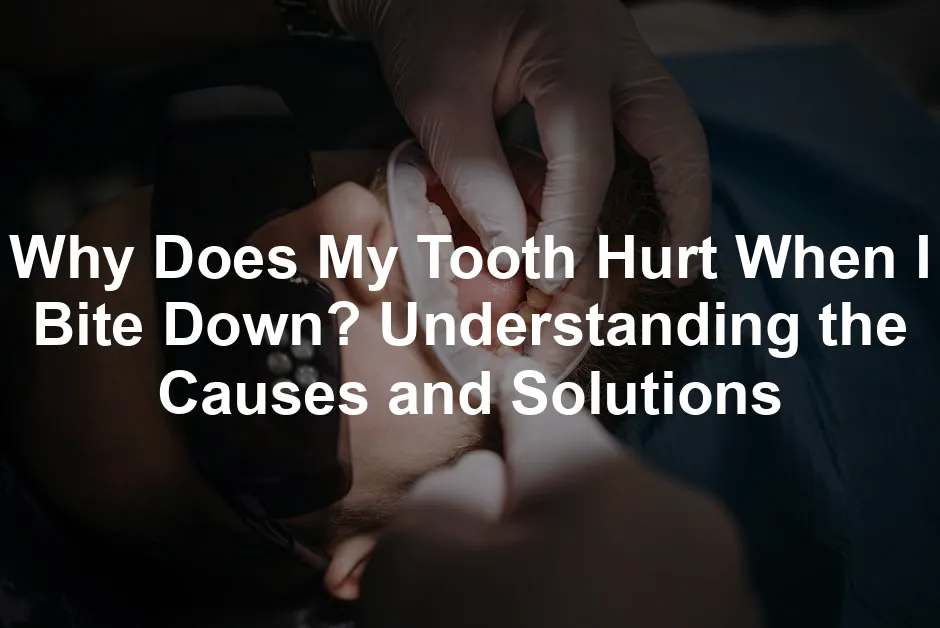
Why Does My Tooth Hurt When I Bite Down? Understanding the Causes and Solutions
Introduction
Tooth pain when biting down is a common issue. Many people experience this discomfort, often wondering what’s causing it. Understanding the underlying reasons is essential for effective treatment. This article aims to educate you about potential causes of this pain and encourage timely dental visits.
Speaking of discomfort, if you’re one of the many battling teeth grinding at night, you might want to consider investing in a Dental Night Guard for Teeth Grinding. This little hero can save your teeth from the nightly grind and keep your jaw from feeling like a weightlifter after a tough session!

Summary and Overview
Tooth pain during biting can signal various dental problems. Ignoring this discomfort can lead to more severe issues down the line. It’s crucial to see a dentist for an accurate diagnosis and appropriate treatment. Common causes of tooth pain when biting include cavities, cracked teeth, gum disease, and more. Recognizing these signs early can help prevent further complications.
And while you’re at it, don’t forget your oral hygiene routine! An Electric Toothbrush can make brushing more fun and effective. Say goodbye to manual brushing and hello to a sparkling smile!
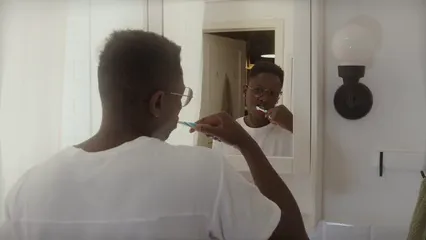
Causes of Tooth Pain When Biting Down
1. Dental Decay (Cavities)
Cavities are one of the primary culprits behind tooth pain. They form when bacteria in dental plaque erode tooth enamel. This leads to holes in the teeth. Symptoms often include sharp pain while biting, especially with pressure. Many people experience heightened sensitivity to sweets as well.
Did you know that around 90% of adults have had at least one cavity? This statistic highlights the prevalence of dental decay. Tooth decay not only causes discomfort but can also lead to more severe dental problems if left untreated. Regular dental check-ups can help catch cavities early. Treatment options often include fillings, which restore the tooth’s structure and function.

Maintaining good oral hygiene is essential in preventing cavities. Brushing twice daily and flossing can significantly reduce the risk. If you suspect you have a cavity, don’t hesitate to schedule a dental check-up. Early intervention is key to preserving your dental health.
And don’t forget to use a good Oral-B Glide Pro-Health Comfort Plus Dental Floss to help remove plaque between those hard-to-reach places. Because nobody wants a cavity party happening in their mouth!
2. Cracked or Chipped Tooth
Feeling pain when you bite down? A cracked or chipped tooth might be the culprit. When a tooth has a crack, it can expose sensitive nerves. This exposure often leads to discomfort, especially under pressure.
There are different types of cracks. Hairline fractures are often hard to detect. They may not show up on X-rays, making diagnosis tricky. Your dentist may use special tests to identify the issue.
Symptoms of a cracked tooth can include sharp pain when biting, sensitivity to temperature changes, or even a dull ache. If you notice these signs, don’t ignore them!
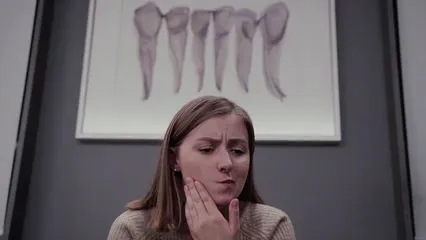
Diagnosis usually involves a dental exam and possibly X-rays. Your dentist will check for cracks and assess the tooth’s health.
Treatment options vary based on the damage. Minor cracks might be treated with bonding to seal the fracture. More severe issues may require crowns or even root canals to protect the tooth.
If you suspect a crack, contact a dentist for evaluation and peace of mind.
And while you’re at it, don’t forget to check out a Teeth Cleaning Kit for those at-home check-ups. Because who wouldn’t want to play dentist on a rainy day?
3. Loose Filling or Crown
Do you feel discomfort when biting down? A loose filling or crown could be the reason. When fillings or crowns become loose, they can shift. This movement can lead to pain when pressure is applied.
It’s crucial to maintain your dental work. Regular check-ups can help you avoid complications. Signs of a loose filling may include sensitivity, pain, or even visible gaps.
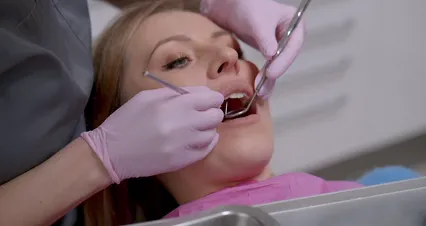
Ignoring this issue can lead to further problems. Food particles can get trapped, causing decay or infection. Repairing a loose filling is usually simple. Your dentist may just need to replace it.
If you notice discomfort or suspect a loose filling, call your dentist. They can help restore your comfort and protect your tooth.
4. Periodontal Disease
Gum disease can cause tooth pain when biting down. As gums become inflamed, they can lead to sensitivity and discomfort. This condition affects the stability of your teeth.
Symptoms of gum disease include swollen gums, bleeding, and bad breath. If left untreated, it can progress to periodontitis. This advanced stage can lead to tooth loss.
Treatment options like scaling and root planing help remove plaque and tartar. Regular cleanings can prevent gum disease from developing.
Healthy gums are essential for stable teeth. Encourage regular dental cleanings to maintain your gum health. Consulting your dentist can provide personalized advice for preventing gum disease.
Speaking of gum health, using a quality Mouthwash for Gum Health can be a game-changer in your oral care routine. Fresh breath and healthy gums? Yes, please!
5. Sinus Issues
Did you know that sinus pressure can feel like tooth pain? This is especially true for your upper teeth. The roots of these teeth are close to your sinuses. When they’re inflamed or infected, you might sense discomfort in your mouth.
Signs of sinus problems include nasal congestion, facial pressure, and headaches. If you notice these symptoms along with tooth pain, it may not be a dental issue. Instead, it could be sinusitis, where your sinuses become swollen and painful.

To treat sinus-related pain, over-the-counter decongestants can help. Humidifiers and warm compresses might also relieve pressure. However, if symptoms persist, it’s best to consult a healthcare provider. They can provide a proper diagnosis and treatment plan for your sinus issues.
And speaking of relief, a Humidifier for Sinus Relief can be a soothing addition to your home, especially during allergy season. Breathe easy and keep those sinuses happy!
6. Malocclusion (Misalignment of Teeth)
Have you ever felt pain when biting down? Misaligned teeth, or malocclusion, might be the reason. When your upper and lower teeth don’t fit together properly, it can create uneven pressure. This pressure often leads to discomfort or pain.
Symptoms of malocclusion include difficulty chewing, jaw pain, and sore teeth. If you notice these issues, it’s wise to seek help. An orthodontist can assess your bite alignment and recommend treatments.

Options for correcting malocclusion include braces or aligners. These tools help reposition teeth for better alignment. In some cases, tooth reshaping may be necessary. If you suspect misalignment, schedule a consultation with an orthodontist today.
7. Dental Abscess
A dental abscess is a serious condition that can cause intense pain. It occurs when a pocket of pus forms around the root of an infected tooth. This infection can arise from untreated cavities or gum disease.
Symptoms of an abscess include localized pain, swelling, and, sometimes, fever. If you experience these signs, seek immediate dental care. Ignoring an abscess can lead to severe complications.
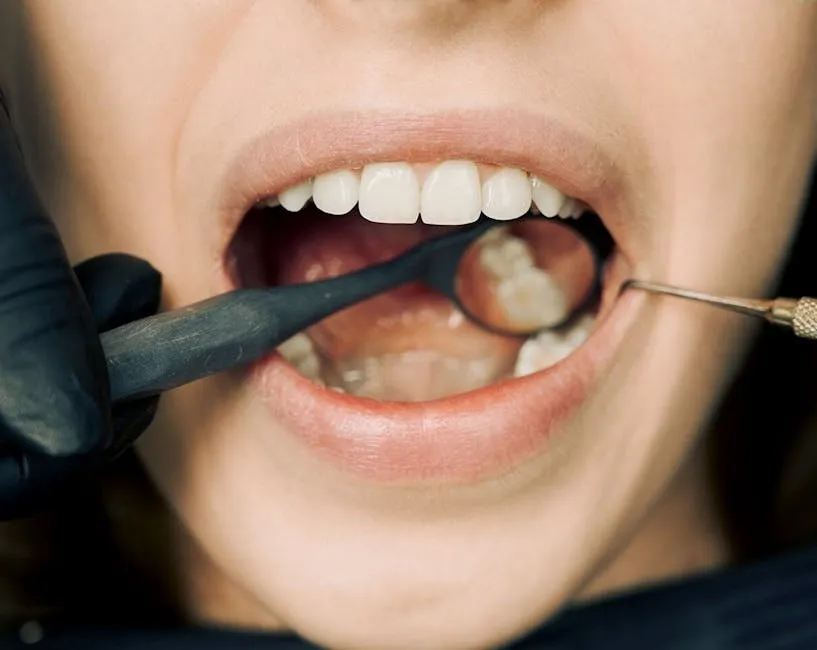
Treatment often involves draining the abscess and possibly a root canal. Antibiotics may also be prescribed to fight the infection. Early intervention is crucial to prevent further complications. If you suspect you have a dental abscess, contact your dentist without delay.
While you’re at it, be prepared with a Dental Emergency Kit just in case you need to tackle any surprises. Because when it comes to dental emergencies, it’s better to be safe than sorry!
8. Teeth Grinding (Bruxism)
Are you waking up with a sore jaw? You might be grinding your teeth at night. This condition, known as bruxism, can lead to significant tooth pain and sensitivity. If you want to understand more about managing bruxism, it’s essential to consider seeking professional help.
When you grind your teeth, you create excessive pressure. This pressure can wear down enamel and expose sensitive nerves. As a result, biting down may trigger discomfort or sharp pain.
So, what causes bruxism? Stress and anxiety are common culprits. Other factors include misaligned teeth and sleep disorders. Are you experiencing jaw pain or headaches? These could also be signs of grinding.
Preventing damage is crucial. One effective measure is wearing a dental nightguard. This custom-fitted device protects your teeth while you sleep. It cushions the impact and helps alleviate discomfort.
If you suspect you’re grinding your teeth, it’s wise to consult a dentist. They can assess your situation and recommend treatment options. Don’t let bruxism ruin your smile—take action today!
By the way, if you’re looking for a more advanced solution, check out the Oral-B Pro 1000 Electric Toothbrush. It’s like having a mini-dentist in your bathroom!
If you’re interested in understanding why certain individuals are more prone to teeth grinding at night, you can read more about it here: why are certain individuals more prone to teeth grinding at night
FAQs
What should I do if my tooth hurts when I bite down?
If you’re experiencing tooth pain when you bite down, it’s important to take action. Start by rinsing your mouth with warm salt water. This can help reduce inflammation and discomfort. Over-the-counter pain relievers may provide temporary relief. However, it’s crucial to consult a dentist for proper evaluation and dental care. Ignoring tooth pain can lead to more serious issues.
Can tooth pain go away on its own, or does it always require treatment?
Tooth pain rarely resolves without treatment. While some minor issues may improve temporarily, underlying problems often persist. Cavities, cracks, or infections won’t fix themselves. It’s vital to seek a professional evaluation. A dentist can identify the cause and recommend appropriate solutions. Addressing tooth pain early can prevent further complications down the line.
What are some home remedies for tooth pain when biting down?
For temporary relief, consider a few home remedies. Rinsing with warm saline can soothe irritated gums. Applying a cold compress to the outside of your cheek may reduce swelling and numb the area. Clove oil is another option; its natural analgesic properties can help alleviate pain. Remember, these remedies are not substitutes for professional dental care.
How can I prevent tooth pain from cavities or decay?
Preventing tooth pain starts with good oral hygiene. Brush your teeth twice daily with fluoride toothpaste and floss regularly. Limit sugary snacks and drinks, as they contribute to cavities. Regular dental check-ups are essential for early detection of issues. Your dentist can provide professional cleanings and guidance tailored to your needs.
Does a throbbing tooth indicate an infection?
Yes, a throbbing tooth often signals an infection. This pain usually indicates inflammation in the tooth or surrounding gums. It’s crucial to seek immediate dental care. An infection can lead to more severe complications if left untreated. Your dentist will evaluate the tooth and recommend appropriate treatment, which may include antibiotics or a root canal.
Please let us know what you think about our content by leaving a comment down below!
Thank you for reading till here 🙂
All images from Pexels




